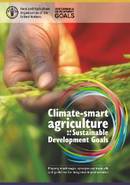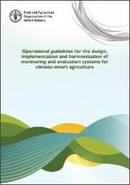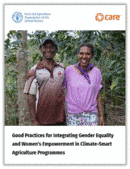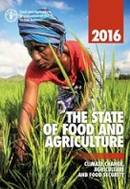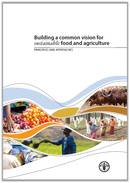Manuals
This publication presents an assessment and mapping of CSA-SDG interlinkages. These provide entry points for targeted CSA planning to enhance synergies and reduce potential trade-offs between CSA objectives and SDGs. The publication also provides guidelines for the integration of the CSA implementation steps with the 2030 Agenda.
These operational guidelines aim to address the core constraints and needs of FAO Member States on both the design and implementation of M&E systems that can simultaneously address CSA and sector reporting requirements for the 2030 Agenda, the Sendai Framework and the UNFCCC Paris Agreement.
With a view towards accelerating the impacts of country programmes in meeting these targets, FAO and CARE have jointly developed this paper to help policymakers and practitioners meet the Sustainable Development Goals (SDGs) and the ambitious goals of Agenda 2030. The paper is intended to help development organisations, public institutions and local organisations to develop climate-smart agriculture (CSA) investments, projects and policies that are more gender-responsive.
Agriculture is facing an unprecedented confluence of pressures that urges for profound changes in our food and agriculture (crops, livestock, forestry, fisheries, and aquaculture) systems.

